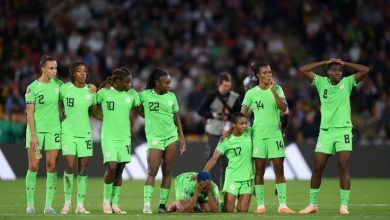Impeached South Korean President Yoon Suk Yeol Defies Investigators Amid Martial Law Scandal

Impeached South Korean President Yoon Suk Yeol on Monday resisted investigators’ calls to answer questions regarding his failed attempt to declare martial law earlier this month.
Yoon, suspended from office since Saturday, is facing multiple investigations into alleged insurrection, with probes being conducted by both South Korean prosecutors and a joint team of police, the defense ministry, and anti-corruption investigators.
South Korea’s Constitutional Court began proceedings against Yoon on Monday, and it now has six months to determine whether to uphold the impeachment. If convicted, Yoon and some of his inner circle face possible life imprisonment or even the death penalty. Yoon is also under a travel ban while the investigations unfold.
On Monday, prosecutors issued a second summons for questioning, following his refusal to comply with an earlier request the day before. A joint investigation unit also asked for his appearance on Wednesday, but Yoon’s office rejected this demand, according to Yonhap news agency. Should he continue to refuse to cooperate, investigators could seek a court-issued arrest warrant.
Yoon’s impeachment followed his brief and controversial attempt to suspend civilian rule, which plunged South Korea into its worst political crisis in years. If the Constitutional Court upholds the impeachment, new elections must be held within two months. In the interim, Prime Minister Han Duck-soo is serving as the acting president.
A preliminary hearing for Yoon’s case is scheduled for December 27, though his attendance is not required. The court has prioritized the case, with a spokeswoman confirming that records from the prosecution and other authorities will be promptly secured.
The political turmoil has sparked widespread protests, with demonstrators both supporting and opposing Yoon. Police have arrested the heads of South Korea’s Defense Intelligence Command and the Army Special Warfare Command, both linked to the martial law bid. The commander of the Special Warfare Command, Kwak Jong-keun, is accused of sending special forces to parliament during the attempted martial law declaration, resulting in a confrontation between soldiers and parliamentary staff.
The ruling People Power Party (PPP) has also faced internal turmoil. Han Dong-hoon, the head of the PPP, resigned on Monday, expressing regret for the “emergency martial law incident” and apologizing to the public.
Yoon’s martial law declaration was accompanied by vows to “eliminate anti-state elements” and concerns over the potential vulnerability of South Korea’s electoral system to external interference. Han Dong-hoon, in his resignation statement, condemned “extremists” such as those promoting election fraud conspiracies and warned that conservatism would have no future if it embraced such views.
Despite the political crisis, the South Korean government has sought to maintain stability. Acting President Han Duck-soo held a call with U.S. President Joe Biden, underscoring the strength of the U.S.-South Korea alliance. Han also ordered the military to “enhance vigilance” against North Korea, with which South Korea is still technically at war.
North Korea, in its first reaction to Yoon’s impeachment, labeled him the “ringleader of rebellion,” calling his martial law attempt a “foolish” move and accusing him of shifting responsibility to opposition parties. North Korean state media, often referring to South Korea’s leaders as U.S. “puppets,” also described the South as being “in chaos” due to the ongoing political crisis.
Tensions between the two Koreas remain high, with North Korea recently launching several ballistic missiles in defiance of UN sanctions, further exacerbating the strained relations between the two nations.





